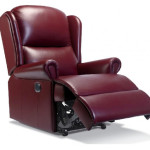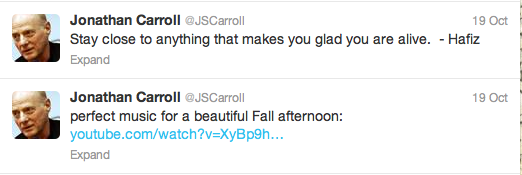A guest post by JJ Bennett.
When I was asked to talk about growing as a writer, one thing for me stood out. Every time I pushed myself, I succeeded. So, how on earth do you push yourself when you’re just starting out? Good question. Stop treating yourself like a hobbyist and treat yourself like a professional.
It’s so easy to relax in your comfortable zone as a writer. You write when you can, dabble in blogging, have that one book collecting dust on your shelf, and you call yourself a writer. I’m just as bad as the next person when it comes to procrastination. So, how do you make that jump? It’s fairly simple. Make better choices.

Sounds easy, but it’s not. Let me explain. Professionals have deadlines, meet with other professionals, and work every day in their craft. They don’t let things stand in the way with getting the job done. They work hard and fast.
Let’s get moving in the right direction then. I’d suggest following these guidelines.
1. Attend a professional writing seminar where you’re asked to produce writing.
Yep, other professionals are going to read and critique your work. Get over yourself. You’re a professional. The best way to improve your writing is to get feedback from other professionals. You’ll be surprised by your growth. While you attend, the pressure of having to write to a higher standard will help you grow as a writer. You will be amazed by the work you produce. Only by being cornered to produce, will you grow at a faster rate than otherwise.
2. Your new best friend is having a deadline.
Professional writers have deadlines. Give yourself some. I’m not talking about goals like I want to write 2500 words a day sort of goals. I’m talking hard deadlines where other people are waiting for your work. If you’re trying to finish that “first book” then pay for an editor before you finish the story. It sounds crazy but most editors (at least the good ones) are months out until they can take on a new client. Pay and get on the list. This way you are invested in the task. You’ve made a commitment to both yourself and the editor. You’re making a “blood oath” so to speak that they’ll have your manuscript in hand in “X” amount of days, weeks or months. Professionals only work under deadlines like these. Get some!
3. Make a place to write.
Not everyone has a beautiful oak carved desk with matching built-in shelves in a home office. Sure it would be nice, but most of us live in the real world. This doesn’t mean go kick your kids out of their bedroom just so you can have an office, but it does mean you need to make a space of your own. It could be a small computer desk in the corner of the front room, bedroom, or even in a closet (if you have a large walk in). Find a space that’s yours and yours only. Remember, you’re a professional. Your area is only for you. I have friends who write in trailers, rent office spaces away from home, and make a space somehow. Wherever your space is no matter how big or small, don’t let the kids do homework there. It’s YOUR SPACE! Ultimately, if something goes missing, is lost, or spilled on… it’s all on you. Taking responsibility is part of being a professional.
4. Make yourself a schedule.
Professionals have their life mapped out. They have a planner or calendar of some kind. It could be on their mobile devise, on a computer, on paper–just somehow get organized. If you have a blog, write down the days you need to post. Write down days and goals to meet your deadlines to others as well as yourself and then integrate it into your family schedule. One schedule to rule them all…
5. Live it.
This one is pretty easy to explain but the most difficult to do. You need to set your priorities.
6. Stay Educated in the Business.
Part of being a professional is staying up on trends. What are people in the field of writing talking about? You need to understand your profession and what’s working and what isn’t. If you read, research, and understand the business side of writing, it will only strengthen you and your standing in the industry.
Getting out of your comfort zone is hard. People don’t like it. It causes stress, inadequacy, and it brings your faults to the forefront. Nobody likes that. It’s hard work and it’s so much easier to coast through life at your own pace than to push yourself. Without that push however, you won’t see that growth that you’re looking for.

If you take these steps to move out of your comfort zone you’ll become a better writer, people will take you seriously, and your writing will show all your hard work and dedication you’ve put into your craft. Sure, it’s nice to sit back in your easy chair and coast through life dreaming of becoming something. But, you’ll spend all your life dreaming instead of becoming anything. It’s time to put down the footrest and get up out of your chair. Get out of that comfort zone.
Guest Writer Bio:

J.J. Bennett grew up as a Southern California native and moved to Southern Utah in 1989. She and her husband Matt, reside in St. George with their four kids. Jen is the creator/head of the “
Authors’ Think Tank“. A group by writers for writers that supports both traditionally published and independent writers. She has written articles locally for “The Independent” and is currently working on her debut YA novel “The Path.” She enjoys travel, cooking, music, and has a deep desire to become a Bigfoot hunter. Find out more about her at
www.jjbennett.com.







